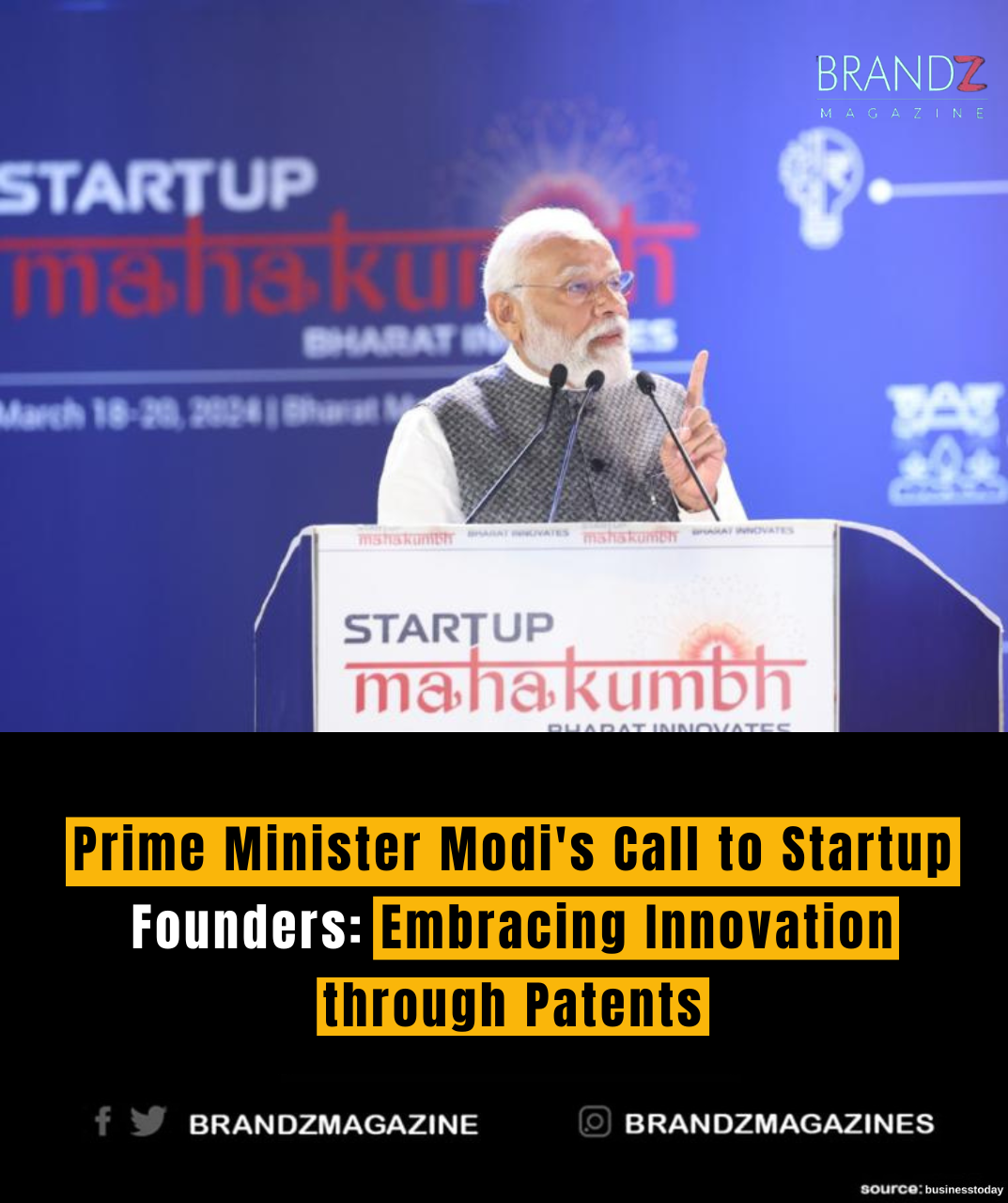
In a recent address, Prime Minister Narendra Modi urged startup founders across the nation to prioritize seeking patents for their innovations. This call to action underscores the government’s commitment to fostering a culture of innovation and entrepreneurship in India. Modi emphasized that securing patents not only protects intellectual property but also encourages creativity and drives economic growth.
India’s startup ecosystem has witnessed exponential growth in recent years, with entrepreneurs venturing into diverse sectors ranging from technology to healthcare and beyond. However, despite the surge in innovation, the country has traditionally lagged behind in patent filings compared to global counterparts. Prime Minister Modi’s directive aims to reverse this trend and propel India onto the global stage as a hub for innovation and technology.
The significance of patents in fostering innovation cannot be overstated. By securing patents for their inventions, startup founders safeguard their intellectual property rights, thus encouraging investment in research and development. Additionally, patents provide startups with a competitive edge in the market, allowing them to capitalize on their unique innovations while deterring potential competitors from replicating their ideas.
Furthermore, patents play a crucial role in attracting foreign investment and fostering collaborations with international partners. Investors and stakeholders are more inclined to support startups with a robust portfolio of patented technologies, viewing them as valuable assets with the potential for long-term growth and profitability. Thus, by encouraging startups to seek patents, Prime Minister Modi aims to catalyze investment inflows and stimulate economic development in India.
Moreover, patents serve as a catalyst for innovation diffusion and knowledge sharing within the startup ecosystem. By publicly disclosing their inventions through the patenting process, founders contribute to the collective pool of scientific and technological knowledge, paving the way for future breakthroughs and advancements. Additionally, patents facilitate technology transfer and licensing agreements, enabling startups to monetize their inventions and explore new revenue streams.
However, the process of obtaining patents can be complex and resource-intensive, especially for startups with limited financial means and legal expertise. Recognizing this challenge, Prime Minister Modi announced initiatives to streamline the patent application process, reduce bureaucratic hurdles, and provide support to aspiring inventors. By enhancing accessibility and affordability, these initiatives aim to democratize the patenting process and empower startups of all sizes to protect their innovations.
Furthermore, Prime Minister Modi emphasized the importance of leveraging emerging technologies such as artificial intelligence and blockchain to modernize the patent system and enhance efficiency. By harnessing these technologies, the government aims to automate patent examination procedures, expedite application processing, and improve the quality of patent grants. This digitization drive aligns with the government’s broader vision of building a digital-first economy and leveraging technology to drive inclusive growth and development.
In conclusion, Prime Minister Narendra Modi’s call to startup founders to seek patents for their innovations marks a significant step towards fostering a culture of innovation, entrepreneurship, and intellectual property protection in India. By prioritizing patents, startups can secure their competitive advantage, attract investment, and contribute to the nation’s economic prosperity. With the government’s unwavering support and commitment to innovation, India is poised to emerge as a global powerhouse of technology and entrepreneurship in the years to come.

